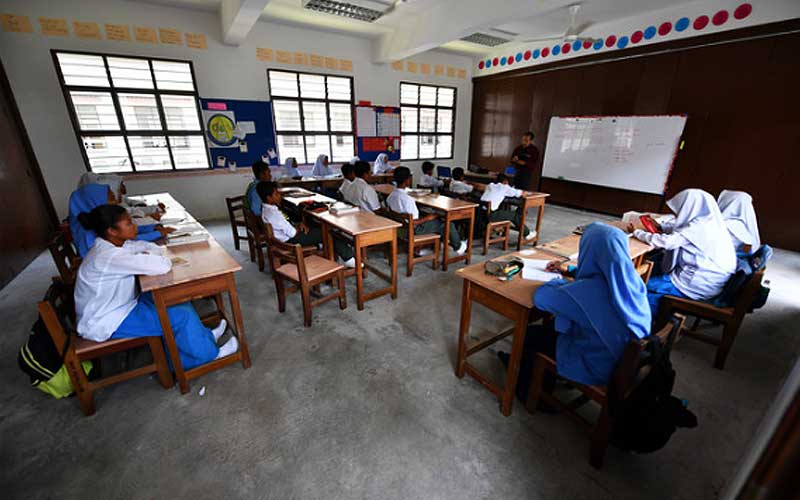 SEPANG: An academic says many students have yet to master the English language not from a lack of opportunity, but because they are simply uninterested in learning.
SEPANG: An academic says many students have yet to master the English language not from a lack of opportunity, but because they are simply uninterested in learning.
Arshad Ayub, who is chairman of the Pintar Foundation, told FMT that such students often believed mastering the Malay language was good enough.
“Maybe at the initial stages you will be all right, but once you turn 19 or 20, you will need to master a second language,” he said at the Malaysia Airports Holdings Bhd (MAHB) Beyond Borders School Adoption Programme here yesterday.
“To work in the private sector, knowing the national language is not enough. Today, even if you want to be a taxi driver, you need to learn more than one language in order to communicate with tourists and the like.”

Noting that people in other countries were often fluent in multiple languages, the former Universiti Teknologi Mara pro-chancellor asked why Malaysians were unable to do the same.
“In Belgium, they speak four languages; in Switzerland and Holland, too. Why can’t our people do it? Because they refuse to. So don’t grumble when people cannot give you a job,” he said.
Unlike in the past, Arshad said, students today had enormous opportunities and access to education.
He recalled his own primary school days in Muar more than 80 years ago when he often walked barefoot through mud in order to reach the school.
“Back in the day, only 60 students had the opportunity to go for English classes. But all that is behind us now. The opportunities for children today are tremendous.”
He also spoke of classes for students who wished to learn another language such as Mandarin.
“But today, maybe there are not enough people who want to do that as a second language, so they don’t have these classes anymore.
“Even today, I would like to learn Mandarin, or Tamil, even. I wish I was younger because I would like to learn Japanese. During the Japanese occupation days, I ran away from school. Silly me,” he said.
Arshad said this was one of the reasons Pintar Foundation was established, to help underserved or under-performing schools improve their standards, especially in teaching and mastering the English language.

“There are still about 1,000 schools which are underserved and under-performing,” he added. “This is where MAHB comes in, to assist us in making it possible for these children to have better quality education.”
Nik Anis Nik Zakaria, MAHB’s general manager of corporate communications, agreed with Arshad that English was an important tool in the job market, especially in multinational companies.
“This is their official language. Correspondence is all done in English.
“That is why we want to start early, as English is one of the killer subjects, especially in underserved schools where students already have a hard time getting there due to socio-economic reasons.” - FMT


No comments:
Post a Comment
Note: Only a member of this blog may post a comment.